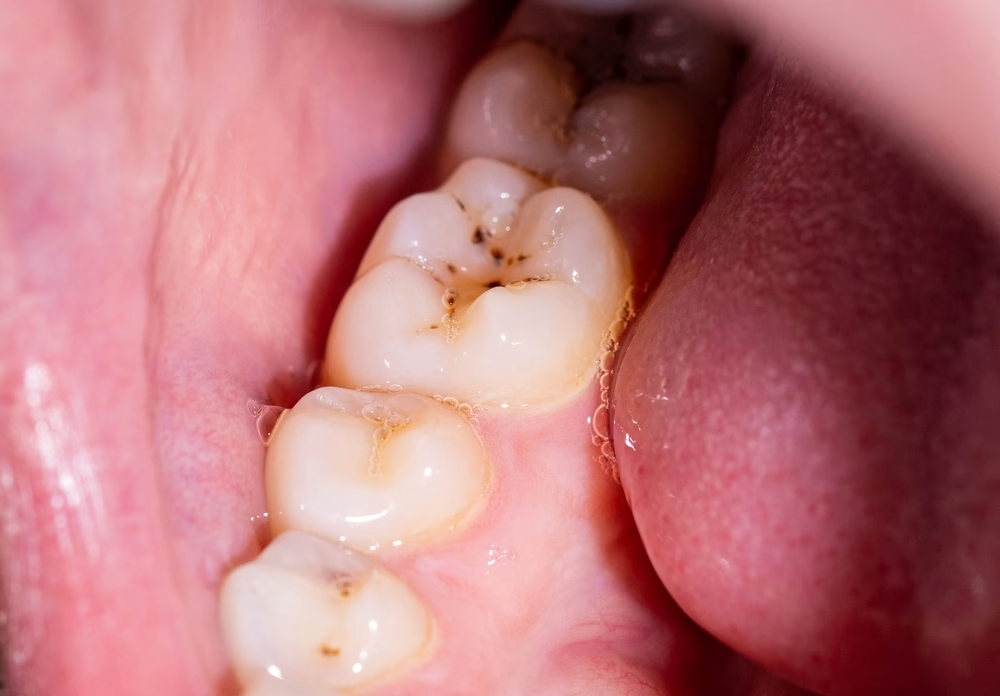Study reveals key connection between oral health and stroke risk
The Hidden Link Between Oral Health and Overall Wellness
It’s easy to think of brushing your teeth as a small, everyday habit — something you do for your smile, not your survival. But new research suggests that what happens in your mouth may have far more serious consequences for your brain and heart than most people realize.
A Surprising Connection
Researchers from the University of South Carolina followed nearly 6,000 adults for two decades to uncover how oral health affects the risk of stroke and heart disease. The results were striking: those who had both cavities and gum disease faced dramatically higher odds of suffering a stroke compared to people with healthy mouths.
When Oral Health Meets the Brain
The study found that participants dealing with both gum inflammation and tooth decay were 86% more likely to experience an ischemic stroke — the kind caused by a blockage that cuts off blood flow to the brain. Those with only gum disease still carried a 44% higher risk. Poor oral health also appeared to increase the likelihood of heart attacks and other cardiovascular problems by over a third.
The Power of Prevention
The simplest protection came from regular dental visits. Participants who saw their dentist consistently were 81% less likely to have both cavities and gum disease. The researchers suggest that maintaining oral hygiene — through brushing, flossing, and checkups — could be an underrated way to guard against not only dental issues but also serious vascular conditions.
More Than Just Teeth
Bacteria from infected gums can enter the bloodstream, triggering chronic inflammation throughout the body. This inflammation can contribute to the buildup of plaque in arteries, potentially leading to clots and restricted blood flow. The findings add to growing evidence that oral health and cardiovascular health are more intertwined than previously thought.
What It Means for You
Good dental care may not just save your teeth — it might save your brain. While the study cannot prove cause and effect, it underlines a vital point: prevention starts with the basics. Consistent care for your mouth could be one of the simplest steps toward protecting your heart and reducing stroke risk.
Key Takeaways for Better Oral and Cardiovascular Health
- Regular dental visits are crucial in preventing both oral and systemic health issues.
- Brushing and flossing daily help maintain good oral hygiene and reduce the risk of inflammation.
- Gum disease and cavities are not isolated problems; they can impact the entire body.
- Chronic inflammation from poor oral health can lead to serious conditions like strokes and heart attacks.
- Preventive care is often the most effective strategy for long-term health.
Additional Insights from Related Studies
Other research has shown that immune changes after breastfeeding could prevent cancer. Similarly, studies on medications like Ozempic and Wegovy have highlighted their protective effects on the heart. These findings reinforce the idea that maintaining overall health involves multiple interconnected factors.
Practical Steps for Better Health
To improve your oral and cardiovascular health, consider the following:
- Schedule regular dental checkups and cleanings.
- Practice thorough oral hygiene at home, including brushing twice a day and flossing daily.
- Be aware of the signs of gum disease, such as red, swollen, or bleeding gums.
- Maintain a balanced diet and avoid excessive sugar intake.
- Stay physically active to support overall cardiovascular health.
By taking these steps, you can significantly reduce your risk of serious health complications and promote a longer, healthier life. Remember, the health of your mouth is closely tied to the health of your entire body.
- INCY dan ABBV memimpin pemenang sektor kesehatan S&P 500 pada kuartal ketiga; MOH dan ALGN tertinggal - December 16, 2025
- Saat Generasi Boomer hingga Gen Z Bertemu Alumni - December 16, 2025
- Kunci Jawaban IPA Kelas 9 Halaman 44: Uji Kemampuan Bab 2 - December 16, 2025




Leave a Reply